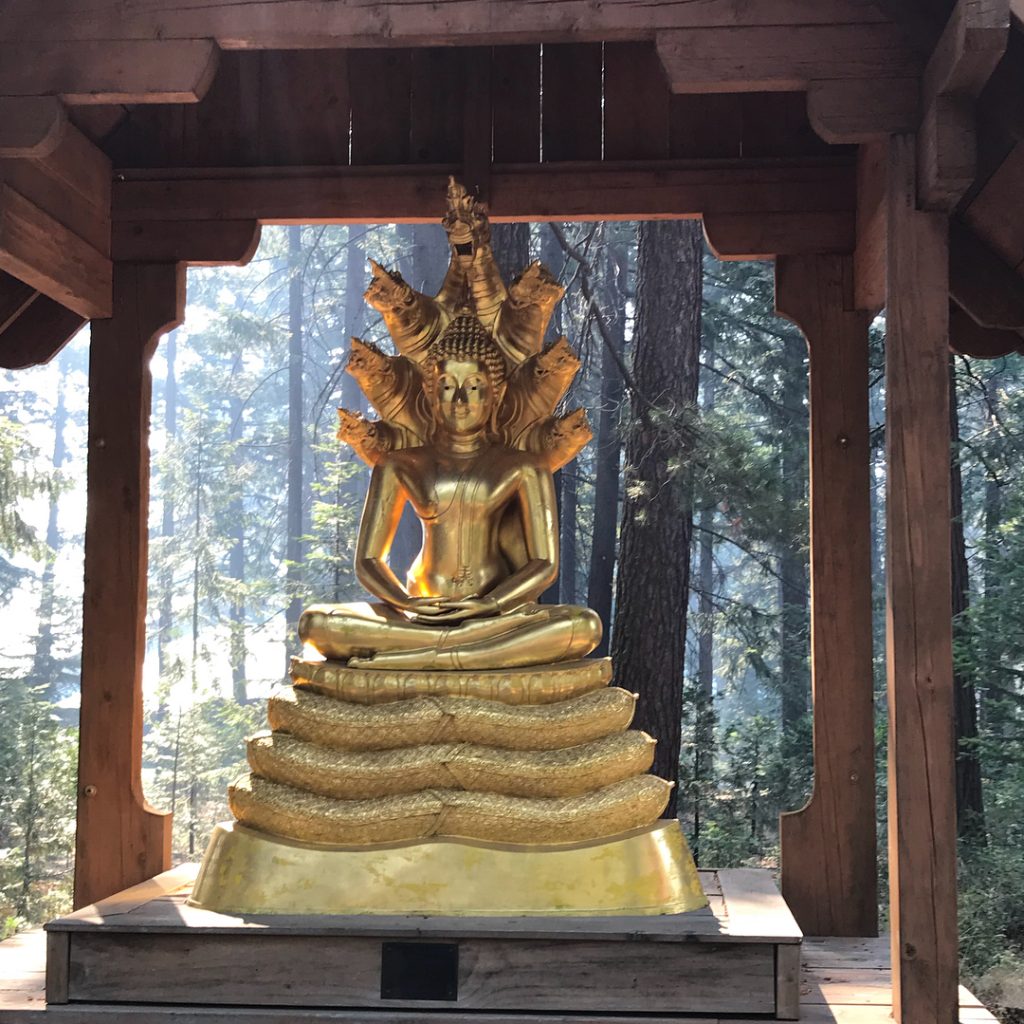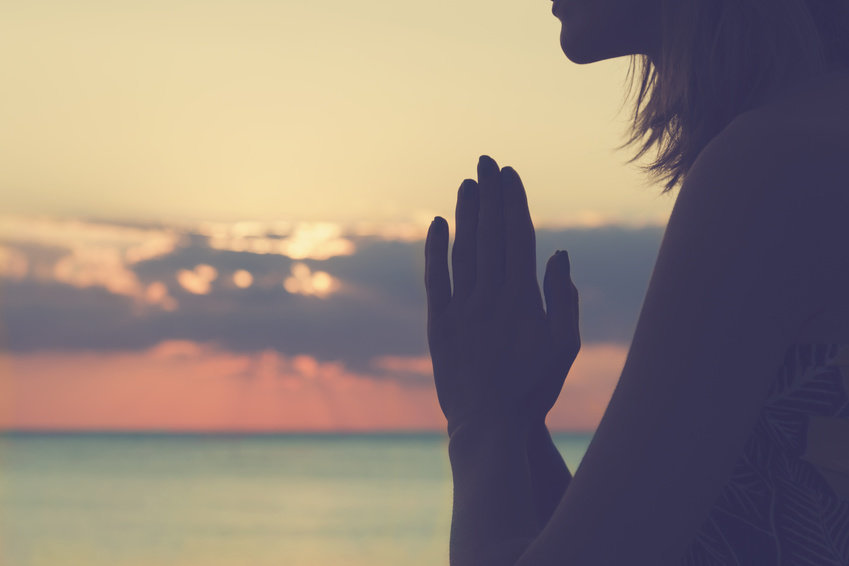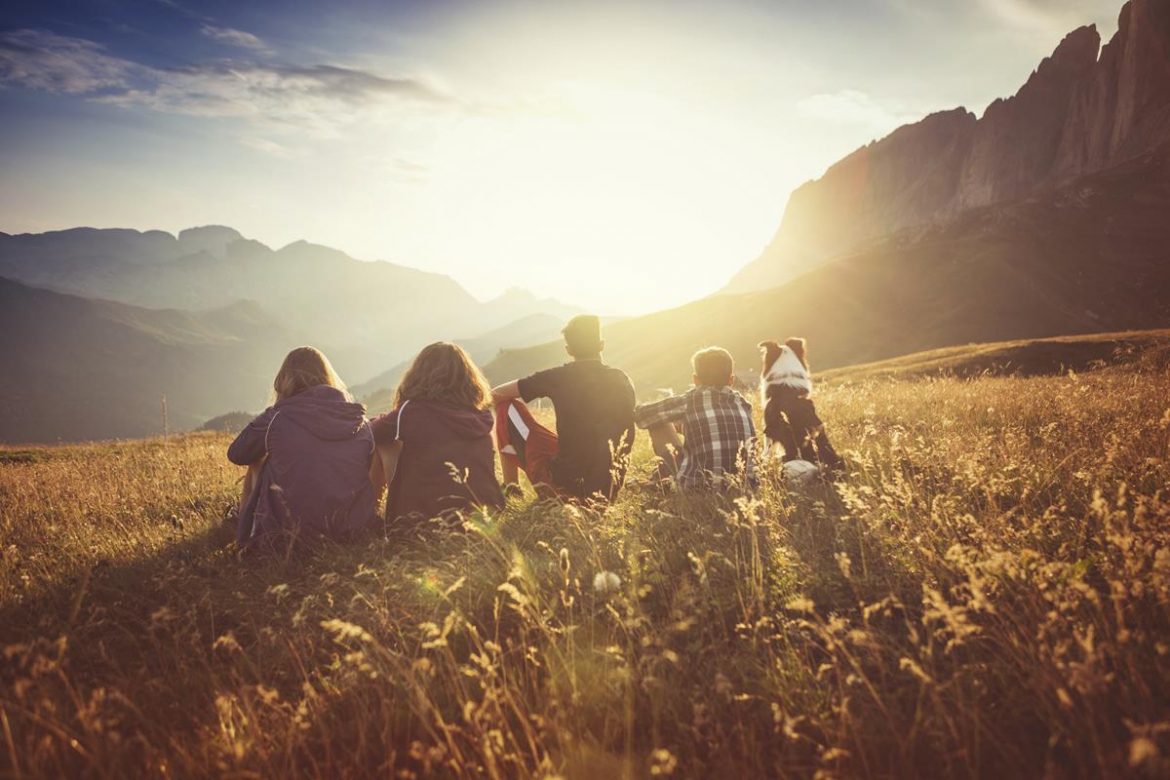A veritable retreat and spiritual guidance industry has sprung up in the last two decades in the West. Apart from the ethical question of turning spirituality into business (a practice as old as both), there’s the question: To what degree are all these retreats and religious teachers actually helping people and transforming society?
Out of curiosity and an urge to find like-minded people to question and ignite insight together, I’ve attended a few daylong retreats in town. I’ve come away with: 1. There is a lot of spiritual hunger out there. 2. There are a lot of people willing to exploit it. Not all people of course, but where there’s a ‘market,’ there are manipulators.

An exception that proves the rule is the Shasta Abbey Buddhist Monastery, located a few hours north of where I live, near the majestic volcanic peak of Mt. Shasta. Though I haven’t visited the Abbey, I attended a special retreat held in town with the abbot and a number of the monks.
They brought an intimation of the abbey with them. With their simple brown robes and austere manner, and the innumerable hours spent in “Serene Reflection Meditation” (Soto Zen), the monks’ presence alone created an atmosphere of respect and quiet.
We sat in silence for about 45 minutes at a time, took shorter “walking meditations,” and had two dialogues, which were really question and answer sessions with the abbot. Naively perhaps, I asked: How did nature evolve a mind that is so at odds with what you call our “Buddha nature”?
Though I’ve gone into the question and feel some insight into the conundrum, my intent was to spark mutual inquiry. The abbot replied, ‘If you have insight into that question, you should be on this podium instead of me.” I thought, why do we need podiums at all?
Spiritual authority is a subtly destructive thing, and spiritual teachers often go to great lengths to disavow it. The essential thing is not to rely on anyone inwardly. Of course, if one discovers something timelessly true, one naturally wants to share the insight, but there’s no ego or authority in that.
I heard about a retreat in another state where people paid a lot of money to come for a week of silent meditation and talks by the teacher. A terrific storm had blown through the week before, knocking down many trees. Chain saws were being employed incessantly to clear away the debris in the vicinity, much to the chagrin of the retreatants.
Upholding the principle of passivity to the point of absurdity, the staff did nothing about the racket, and the teacher found the situation funny from her guru podium. Finally a few of the guests insisted that the staff make the chain saws cease and desist for a few hours during the day, thereby temporarily restoring some measure of treasured tranquility.

The story illustrates a major flaw in the spiritual movement–that of removing oneself from the world, taking the attitude that nothing matters but the individual ‘here and now.’ Indeed, believing that our individual reactions and responses are the be-all and end-all is the great peril of the contemplative life.
One often hears from retreatants some variation of the mantra: “I can’t do anything about the world’s problems; all I can do is watch my own reactions.” That’s solipsistic, and it results in viewing economic and political injustices as mere intrusions upon one’s personal and permanent retreat from the world.
So what is the relationship between a monastery and the world?
In the Middle Ages, when most of the monasteries were built, they were intended to be refuges from the wars, ravages, diseases and criminality of the “Dark Age.” (By the way, in Europe during the Middle Ages there were about 600 monasteries; in Tibet, there were 6000 before the Chinese Communist Party decimated them.)
The European (and for that matter Tibetan) monks often transcribed and passed down great works from antiquity. In our dark age, monastic separation is all but impossible. Given how interconnected human consciousness has become, physical and psychological removal is not an option.
In this mad meaningless globalizing society, all inwardly alive people now need sanctuary. Can the many who hunger for refuge discover another source of it—in inquiry, insight and spiritual friendship?
Martin LeFevre
Lefevremartin77 at gmail.com
Fountainoflight.net

